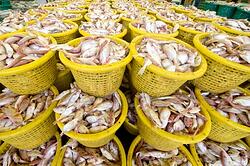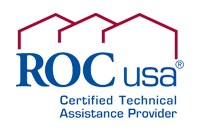
Food sustainability requires change on the farm, and on the table
By Community Loan Fund staff
Here in New Hampshire, farm-to-table strategies are well-focused on building infrastructure and expanding consumers' palates.
Dan Barber, a renowned chef and author of the book, The Third Plate: Field Notes on the Future of Food, is kicking up dust around the farm-to-table movement.
Barber wrote in the New York Times that despite the claims of four-fifths of Americans that sustainability is a priority when they shop for food, "For all its successes, farm-to-table has not, in any fundamental way, reworked the economic and political forces that dictate how our food is grown and raised."
 |
| Image courtesy think4photop / FreeDigitalPhotos.net |
Essentially, he writes, we have embraced local food without really embracing (or even understanding) what it takes to produce it, including "humbler" crops that farmers plant in rotation to keep their soil rich and productive.
Helping those little-known crops pass consumers' taste tests, he says, will likely require middlemen between the farm and the table: producers such as mills, canneries and even creative chefs like himself.
We're fortunate here in New Hampshire that farm-to-table strategies are already focused on building infrastructure and on expanding consumers' palates.
New Hampshire Community Seafood is an example. It consists of a dozen coastal fisherman who have adapted the increasingly popular community-supported-agriculture model to create a Community Supported Fishery (CSFs).
Members get a weekly "catch" that includes not only popular fish, but also lesser-known species like butterfish, dab and dogfish shark. Community Seafood's Web site offers 11 pages of recipes and invites members and chefs to share theirs. And this year they've added a similar program to supply local restaurants.
Consumers get good value and are supporting sustainability when "easy-to-catch" fish are brought to a receptive market and pressure to over-fish popular species is reduced.
Three farms near the Seacoast are collaborating to expand both infrastructure and palates. Heron Pond Farm in South Hampton, Stout Oak Farm in Brentwood, and Meadow's Mirth in Stratham have teamed up to deliver a consistent and varied supply of produce to area restaurants and retail markets.
Offerings under their Three Rivers Farmers Alliance label include lesser known produce such as yukina, Tokyo bicana, pink mustard, choi, kolrobi and a variety of heirloom vegetables.
Of course, the act of putting these on produce shelves doesn't mean consumers will pick them up. Chefs, like those at Portsmouth restaurants Black Trumpet and Moxy, help win over hesitant consumers by using new varieties in their delicious dishes. In local markets, consumers will soon find the produce accompanied by recipes and flavor descriptions.
Behind the scenes, our Farm Food Initiative has helped with both of these projects by connecting them with expertise on everything from consumer demand to infrastructure needs and costs, to marketing strategies.
The farmers and fishermen we work with know, and we know, that true sustainability will require changes on both ends and throughout the farm-to-table path.















